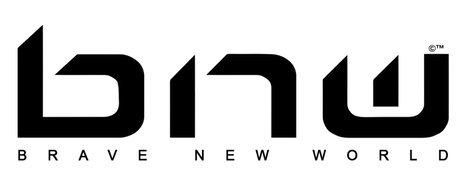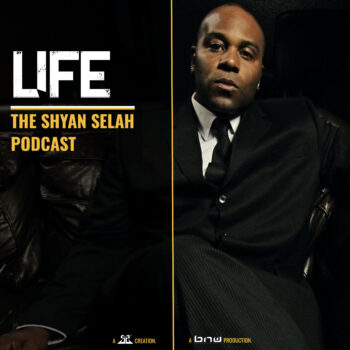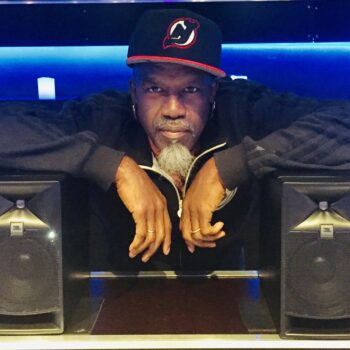
FROM CONVERGE MEDIA: Shyan Selah: Music, Mentorship, and a New Chapter with Forbes
This article was first published in Converge Media by Emma Schwichtenberg. Click here for the original article.
Raised in a household that he refers to as a “black museum,” Shyan Selah was surrounded by an abundance of records, books, art, vinyl, CDs, sports memorabilia, and articles, particularly those reflecting the history of Black culture. His musical journey began in a household deeply immersed in cultural and musical influence. His grandmother, the late Goldia Brinson, founder of Black Arts and School-in-Lieu, was a prominent producer of plays and concert productions. His parents were hard workers. His mother, Phyllis, was a United Airlines Executive and loved to sing gospel music, while his father, Carlos, held an executive management position with the Federal Way School District and was a passionate record collector. This rich environment played a pivotal role in shaping his deep love and connection to music.
Selah’s older brothers were athletes and breakdancers, and it was his oldest brother, Marcus, who introduced him to the world of hip hop music. Although he was a successful three-sport athlete in football, basketball, and track and field it was during the early ’90s, while still in high school, that Selah started to explore his musical talents by going to the studio with his brother. With a natural knack for writing and rhyming, his love for hip hop and breakdancing made music a natural fit for him.
After college, Selah moved to Los Angeles and became immersed in both the LA and New York music scenes of the late ’90s. His career began to take off when he signed his first record deal with NFocus/EMI. He also gained industry experience working with the Wayans brothers after his childhood friend, Erik Willis, VP of Music for Wayans Films,helped him get a job as an extra on their hit TV series, Wayans Bros.. This early exposure to the industry played a significant role in shaping his path as an artist.
Converge Music spoke with Selah about his new music releases, upcoming Forbes book, and ongoing youth outreach initiatives like Connect to Nature and the Artist Workshop.
So, having grown up in such a musically rich environment, with both your parents and brothers influencing your taste, how do you think your early family experiences shaped your career?
My family played a huge role in shaping my career. Growing up in such a musically vibrant household gave me the foundation for everything I’ve done. My mom, singing the gospel, my pops with his extensive record collection—this all fed into my musical ear. From a very young age, I was surrounded by a deep appreciation for music and culture, and it naturally became part of who I am as an artist today. Whether it was my brothers’ breakdancing or my dad’s record collection, all of that combined made music feel like a second language to me. It wasn’t just about liking music—it was about living it, being immersed in it, and allowing it to shape who I became as an artist.
Could you describe your childhood and the role music played in it?
Man, literally everything. My upbringing was in an ultra-soulful, blue-collar environment. I grew up in a family of five boys, and I’m the middle kid. Both of my parents worked incredibly hard. My mom climbed the career ladder at United Airlines, and when she was at home, it was just her singing and cooking. She’d play artists like Anita Baker, Sade, Luther Vandross, or sing gospel songs, or songs she would make up herself. That was one of my first impressions of music.
My dad, on the other hand, was the original one-man band. All he needed was a little smoke, something to sip on, and his record collection, and the whole block would be lit. He played music constantly. He worked hard, but when he wasn’t working, it was music—morning to night, 24/7. The vibe in our house was a constant flow of everything from Motown and funk to rock and roll. My childhood was literally my dad’s playlist, and it varied based on how he was feeling that day. There was no formal training in singing, writing, or rapping for me; it was all just kind of programmed into me. Growing up in what I would call a “black reality play,” I didn’t realize how much this environment would shape me professionally and spiritually.
I struggled early on, not understanding the full impact it would have on me, but now I honor my parents for it. Whether it was intentional or not, they were just doing what they loved, and I’m thankful that music was like therapy for us all. It was unforced, the thing that kept everything together and helped keep the demons at bay. That’s the pillar of my thoughts about its impact on my childhood.
It’s interesting how music shapes who we are, and even how people from different places connect differently based on what they grew up listening to. How do you approach blending genres, given the variety of influences you’ve had?
I love that question, that’s an awesome question. For me, I try to break my life down into simple principles, and one of the core ones is being honorable. What I mean by that is having enough grace to embrace your truth and enough courage to approach things authentically. When you’re authentic, there’s a blend of your talent, your character, but there’s also a vulnerable space. It requires empathy and curiosity to allow yourself to be led and moved by the music.
Regardless of the musical style or genre what I’ve always tried to do is be a translator, a channeler of how the music speaks to me and what I think it’s trying to say. Once I’m in that space with it, I let my spirit flow. My courage is in allowing myself to be vulnerable enough to be led by the sound, and then my freedom comes through letting my soul go free in my writing and my vocalization. It’s difficult, but liberating. That’s my path—being true to myself, but also embracing the influences that speak to me.
You’ve had the opportunity to collaborate with such a wide range of diverse talent across various genres, including Pink Floyd, KRS-One, and CeeLo Green. What have you learned from working with these artists?
Man, I really like that question. First off, there’s something about being open to opportunities. I think because of the way I was raised, I was programmed to be receptive, and that’s played a huge role in the doors that have opened for me. It’s almost like a law of attraction or manifestation—just meeting the right people at the right time, often in non-traditional ways. One moment you’re vibing with someone, and the next thing you know, a whole new opportunity is on the table.
I’ve been lucky enough to work with some incredible people—Pink Floyd, KRS-One, CeeLo Green, and many more. For example, I met Scott Page from Pink Floyd through my friend Martin Guigui, who asked me to perform at the House of Blues in LA one night. It was a concert with members of Pink Floyd, Tower of Power, and other rock and funk legends. I was the only rapper invited to perform, and it was all for a cause-centered concert called “Unity for Change.” That’s how I ended up connecting with these icons and forming lasting relationships with them.
One thing I’ve learned from all these collaborations is that you have to stay open. Being able to collaborate is one of the most valuable traits you can have in this industry. It’s game-changing. Whether it’s working with KRS-One and the Temple of Hip Hop or with artists from different genres, the ability to connect and share creatively has been key to my growth.
What also stood out to me is how human everyone is. Despite the layers of the industry and all the external noise, when you strip it all away, it’s just people—people who love to create. Whether they’re legends or not, they’re human beings who share similar values: love for family, hometown pride, and simple pleasures like favorite foods or sports teams. That’s what I cherish most from these collaborations—working with people who are grounded, imperfect, but still driven to deliver something meaningful to the world. And at the end of the day, it’s all about having fun and embracing that creative impulse.
You mentioned being the only rapper in a predominantly rock and roll event. Given the history of rock and roll’s roots, pairing it with rap makes a lot of sense. But have you ever come across musical performances where genres that people wouldn’t typically think go together, like rap and jazz, actually complement each other?
I think people misunderstand the way genres work in the music industry. If we compare it to a planet, each genre could represent a continent—rock could be America, hip hop the UK, and jazz Africa. There’s a separation within the business, but artists—us, the citizens of this “planet”—don’t care about those borders. We have this creative license to enjoy all kinds of music. It’s ridiculous to think a rapper has never enjoyed a jazz dinner date or that a jazz lover hasn’t gone out to a club night and turned up. I was blessed growing up with a dad who loved all kinds of music, so I’ve always felt that same freedom.
Over time, I met others who shared that same openness, artists who were comfortable being themselves but also respected and celebrated all kinds of music. That’s when the magic happens. For example, my friend DMC from Run-D.M.C. taught me this—rock and hip hop aren’t as different as people think. The iconic collaboration between Run-D.M.C. and Aerosmith was groundbreaking at the time. But when you look closer, these artists shared common ground. They loved the same fashion, the same vibe—they were both about having fun and enjoying the music. The business side of things creates these separations, but in reality, we all just want to create and share music.
I love that perspective. It reminds me of a story from my childhood. My mom is a high school teacher, and she once had a student who hated classical music. She played a song for him that started with classical music and then transitioned into rap, and he ended up loving it. He even started mixing classical music with rap songs on his own.
That’s such a dope story, and I love that your mom had the instinct to help him see that. Music is universal, and it’s amazing how something as simple as blending genres can open up new possibilities. For me, every morning, I have a ritual. I start my day with Beethoven’s Seventh Symphony, Second Movement. I love it. And to mix it up, I often have Coltrane playing in the background while I enjoy my coffee. People might be surprised by that combination, but to me, it just works. Music, in any form, can find a place in your life. It’s all about the mood and the moment.
I agree, it’s about being open and embracing the unexpected connections music can create.
Exactly. It’s the same with all art. Once you stop letting the boundaries of genre or expectation limit you, that’s when you start to see the true beauty and possibility of it all. Music is meant to be felt, experienced, and shared, no matter where it comes from.
I’d love to talk about the Cafe Noir Project. I know it’s about bringing live music to Starbucks locations, but I’m particularly interested in your vision for this project and how you see it evolving in the future.
That’s a great question. So, my career trajectory has been interesting. I’ve been in the industry for a long time, performing on big stages, doing large collaborations, and more. But personally, I’ve always been somewhere in the middle, not a big celebrity, but still able to make a living from my art. The money was never the driving force for me—it was always about the love of the craft.
After about 10-12 years in hip hop, I decided to start a rock band, The Republic of Sound. We played historic venues like the Whiskey and the Roosevelt and had some great experiences. But there came a point when I felt the need to get back to the roots of music, to return to something more personal. I longed to be in a basement, like I was growing up, just writing and singing, focused on the essence of the music.
One day, I was sitting in a Starbucks on 23rd and Jackson in Seattle with my team, and I had this vision. I wanted to create something with that raw, authentic vibe. It was an almost therapeutic return to why I started making music in the first place. I told my team about this idea, and they thought I was crazy, but I saw something in it. Soon after, I began performing in Starbucks stores, and it became more than just a performance—it was a grounding experience that brought me back to my love for the craft.
How did this project evolve from there?
It evolved organically. What started as a personal reawakening became something much bigger. I realized that what I was creating wasn’t just music; it was a way to bring people together. I started seeing how diverse the audiences were—kids, elders, people from different walks of life, from the LGBTQ community to civil rights leaders. It was a beautiful mix of people, all appreciating the music in a shared space. That connection felt powerful and life-changing.
As the project grew, I also saw it becoming a conduit for resources. For example, universities reached out, struggling to get the word out about their diversity scholarships. So, they joined me in the Starbucks stores, helping parents and grandparents access opportunities for their young they didn’t know about. It was incredible to see how music could become a bridge for such important information and connections.
That’s when I realized the project was special—it wasn’t just about performance, but about embracing community and providing resources. It became much more holistic than I had ever expected.
What’s next for the project?
Well, we want to tell the full story of the Cafe Noir Project. Starbucks has been great about allowing us to document everything, and we’re working on a coffee table book, which will be launched at Barnes and Noble. There’s also a documentary in the works, and we’re planning a live performance to be released in 2025. We’ve been working on this for the past few years, especially since the pandemic really showed me that this project needed to be seen and heard by a larger audience. I’m super proud of how it’s turned out and excited to share it with the world on a bigger scale.
You’ve mentioned programs like Connect to Nature and the Artist Workshop. Can you share your perspective on why initiatives like these are important for the next generation of creatives?
It’s pretty straightforward. I look at what I could have used when I was younger, around 12 to 15 years old. The idea is to pair ambitious youth with those who have fulfilled their ambitions. These programs are based on my own experiences and leverage my professional network, whether they’re from LA, New York, or other places. The Artist Workshop, for example, puts young people in front of professionals in fields like film, publishing, marketing, and distribution. Connect to Nature was created to expose inner-city kids to nature—mountains, rivers, streams—that they might feel are inaccessible. In the Northwest, we’re surrounded by this natural beauty, and I got to experience it early on. I noticed that programs like these were missing in schools, so we collaborated with the state of Washington Department of Natural Resources to make them happen, and I’m very proud of that.
I wanted to ask you how writing compares to songwriting, or book writing compared to songwriting.
It’s interesting—it’s uniquely the same. In the case of the Forbes book, there’s a team involved in the process, so it’s more about channeling ideas and being open to answering questions, kind of like how you and I are having this conversation. But with personal writing, it’s a lot like songwriting. It’s about knowing how to chronicle stories and convey that expressive vibe. At the end of the day, whether it’s a book or a song, it’s about creating something that resonates with the person who will ultimately experience it, and to me, the processes are very similar.
Selah has a packed schedule ahead, blending his talents in music, writing, and community outreach. In the literary world, Selah recently secured a book deal with Forbes, with a planned release in 2025. The book will offer readers an in-depth look at his life and career, chronicling his journey through the music industry and his entrepreneurial achievements. An official announcement from Forbes is anticipated in December, adding to the buzz around this project.
Beyond music and writing, Selah continues his commitment to building his business ventures and youth outreach through programs like Connect to Nature and the Artist Workshop. These initiatives are designed to mentor young people and connect them with resources that foster creativity, providing experiences that Selah himself found invaluable growing up.
Find Shyan Selah at www.shyanselah.com or on Instagram @shyanselah.
- On November 22, 2024



